Meet Our Fellows
Current Humanities Center Fellows, 2023–24
With the support of the UT Chancellor’s Office, the Office of Research and Engagement, our affiliated arts and humanities departments, and the College of Arts and Sciences, the UT Humanities Center supports the creation of groundbreaking humanities research through our fellowship programs. These individuals—Faculty Fellows, a Digital Humanities Faculty Fellow, Graduate Fellows, and a Marco Haslam Dissertation Fellow—are listed below.
Faculty Fellows

Małgorzata Citko-DuPlantis
Assistant Professor of Japanese, Department of World Languages & Cultures
Project Title: Embracing Instability: Imagining “Man’yoshū” in Medieval and Modern Japan
Project Description
As the first extant collection of Japanese court poetry (waka), Man’yōshū (Collection of Ten Thousand Leaves, 759–785) lies at the source of Japanese culture and intellectual history; earlier anthologies compiled in Japan emphasized Chinese poetry (kanshi), language, and culture. Man’yōshū, a collaborative project that took many versions to complete, is currently defined as the earliest extant anthology of waka, compiled by Ōtomo Yakamochi (ca. 718–785), and divided into twenty volumes with 4,516 poems. This definition, along with all modern annotated editions, is based on the earliest complete Man’yōshū manuscript, the Nishi Honganji-bon, which dates from the early 1300s but was reintroduced to the public only in the 1930s. In this monograph, I challenge the exclusive legitimacy of this manuscript as the standard for research, teaching, and translation. I also argue that “Man’yōshū” is not just a text but an image, stabilized construct, genre, label, or matrix of knowledge of “Japaneseness” in Japan and beyond.
Embracing Instability proves that the collated and seemingly fixed texts create a distance between the readers and manuscripts on which those annotations are based; they are more a result of the process of handbooking the classics than the classics themselves. In destabilizing “Man’yōshū” through broader frameworks of medieval and reception studies, I expose Japan’s cultural and discursive diversity, while being committed to interdisciplinarity, trans-historicism, and digital humanities. Finally, Embracing Instability explains a contemporary pop-culture trend—interest in the medieval era, as evidenced by Tolkien’s Lord of the Rings, the TV show Game of Thrones, and many heroes transfigured in video and mobile games. I argue that we currently live in the era of Neo-Medievalism, that is the unifying impact of technology, ill-information, and tendency for never-ending updates without much consideration for the “original” source.
About Małgorzata Citko-DuPlantis
Małgorzata K. Citko-DuPlantis (Ph.D. University of Hawaiʻi at Mānoa) is an Assistant Professor of Japanese Literature and Culture at the University of Tennessee.
She is currently working on her book monograph Embracing Instability: Imagining “Man’yoshū” in Medieval and Modern Japan, which challenges the exclusive legitimacy of one manuscript of Man’yōshū (Collection of Ten Thousand Leaves, 759–785)—the first extant collection of Japanese court poetry (waka)—as the standard for research, teaching, and translation. She also argues that “Man’yōshū” is not just a text but an image, stabilized construct, genre, label, or matrix of knowledge of “Japaneseness” in Japan and beyond.
Her research interests range from the instability of knowledge and mechanisms of stabilizing lines of knowledge transmissions in premodern cultures, to depictions of premodern Japan in contemporary pop-media, representations of women in Japanese culture, Japan’s intellectual history, and non-Western digital humanities. Recipient of many research grants and awards, including Japan Foundation, Fulbright, and Japanese Ministry of Education, Culture, Sports, Science and Technology (MEXT). Presenter at national and international conferences, including Association for Asian Studies, Modern Language Association, International Congress on Medieval Studies, and Medieval Academy of America; invited speaker at research institutions, including Yale University and Dartmouth College.
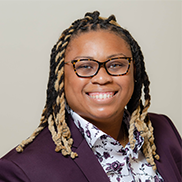
Shaneda Destine
Assistant Professor, Department of Sociology / Department of Africana Studies
Project Title: Cuffy Witsell and Black Rural Resistance Rearticulated in Colleton County, South Carolina’s Round O Plantation
Project Description
Shaneda Destine’s current project: Cuffy Witsell and Black Rural Resistance Rearticulated tells a intimate story of Black land ownership through a familial context. It utilizes methods of critical auto ethnography, ethnographic research methodologies and archival research to contextualize the Black land cooperatives, mixed raced alliances that help to build up the postbellum south. Black Rural Resistance Rearticulated is a theoretical conceptualization she uses to uncover strategies of Black people building cooperatives, growing food, and building infrastructure for their community, as they contended with dispossession and precarity, during the Reconstruction era. This project will help to give us a more complicated understanding of how to delve into the makings of Black social movement organizing (BSMO), while contending with the dispossession of Black land, indigenous people and the gendered and racialize ways that it converges.
About Shaneda Destine
Dr. Destine’s research program centers on race, gender, sexuality, and contemporary social movements. She is most interested in how systematic oppression effects the overall well-being of marginalized people. She investigates forms of resistance of Black women and Black Queer people, as they create spaces of Black Joy and Respite, while struggling for liberation. Dr. Destine’s work is theoretically informed by Critical Race Theory, Intersectionality, and Black Radical Social Movement Theory. Her goal is to further the notion that race, gender, class, and sexuality act as vectors of oppressions central to the sustaining global capitalism and systemic oppression, particularly through the use of state violence.

Georgi Gardiner
Associate Professor, Department of Philosophy
Project Title: She Said, He Said
Project Description
Gardiner’s research focuses on when evidence justifies conclusions, especially in high stakes social contexts such as legal convictions, scientific conclusions, and morally loaded beliefs. Gardiner’s current monograph project, She Said, He Said, investigates the epistemology of rape accusations, focusing on formal institutional procedures. ‘She said, he said’ cases are accusations of rape, followed by denials, with no further significant evidence, such as credible alibis or third-party witnesses. In such cases, the accusation is probably true. The project explains why uncorroborated rape accusations are excellent evidence of guilt. The research thus helps reduce undue doubt about rape accusations. But the epistemic force of rape accusations generates a paradox. This paradox—which arises from the contrast between the relatively weak ‘preponderance’ standard and the characteristic epistemic strength of rape accusations—reveals tensions among plausible feminist and liberal commitments. Building on recent insights from philosophy and law, She Said, He Said challenges our understanding of testimony, proof, epistemic justice, and the epistemology of rape.
About Georgi Gardiner
I specialise in epistemology. My research clusters into five areas. The first is the nature and value of understanding and explanation. The second concerns questions about epistemic virtue, value, and luck. The third area is the ethics of belief and especially the effect of moral considerations on epistemic norms. Fourthly, I examine meta-philosophy and the epistemology of philosophy. Finally, I research social and applied epistemology, especially collective epistemology and legal epistemology.
Recently I have been investigating the epistemology of legal standards of proof and sexual assault accusations.
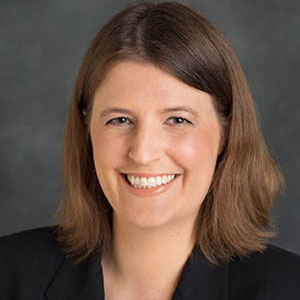
Hilary Havens
Associate Professor, Department of English
Project Title: The Cambridge Edition of Frances Burney’s Cecilia
Project Description
Frances Burney (1752-1840) was one of the most celebrated authors of the long eighteenth century, and her works influenced later authors such as Jane Austen and Charles Dickens. This project is a critical edition of Burney’s second novel Cecilia (1782) that is part of the Cambridge Edition of the Novels of Frances Burney. Published at the height of Burney’s powers, Cecilia is a bildungsroman focused on the orphan Cecilia Beverley and the various obstacles she must face before she can marry Mortimer Delvile. There are significant variants and deletions within the manuscript draft of Cecilia, and the longest and most strikingly obliterated passage is located within the novel’s famous masquerade scene, which I have recovered using techniques in digital paleography. The newly restored text describes the bizarre satanic rites of Cecilia’s admirer, Mr. Monckton. In my monograph, I have argued that Burney’s suppression and revision of this scene, when read alongside her contemporaneous letters, reveals that she succumbed to familial pressures to remove innovative elements while writing the novel. The fuller range of manuscript evidence that I have begun to recover has already influenced scholarship regarding Burney’s Cecilia, and my further work on the critical edition has the potential to unearth findings that could continue to change our views of Burney and her authorship.
About Hilary Havens
Hilary Havens is an associate professor in the English department and the author of Revising the Eighteenth-Century Novel: Authorship from Manuscript to Print (Cambridge UP, 2019). She is also the editor of Didactic Novels and British Women’s Writing, 1790-1820 (Routledge, 2017), the co-editor of Samuel Richardson and Edward Young’s correspondence (Cambridge UP, forthcoming), and the co-editor of the Maria Edgeworth Letters project (https://mariaedgeworth.org/). She is under contract with Cambridge UP to produce two editions of Frances Burney’s second novel Cecilia (1782): a two-volume scholarly edition and a one-volume student edition. Her research has been supported by fellowships from the National Endowment for the Humanities, the New York Public Library, and the Huntington Library.
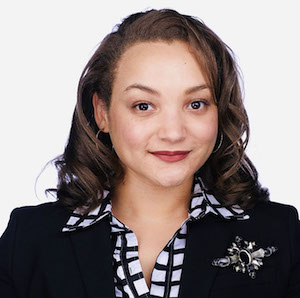
DeLisa Hawkes
Assistant Professor, Department of Africana Studies
Project Title: Separate Yet Intertwined: Rediscovering Black Indigeneity in the New Negro Renaissance
Project Description
In Separate Yet Intertwined: Black and Native Bonds in the New Negro Renaissance, I examine how authors of the period commonly referred to as the Harlem Renaissance wrote to develop anti-colonial thinking within Black American communities through their representations of indigeneity. I frame these authors within the larger New Negro Movement, extending my archive to include writers who wrote outside Harlem and beyond the 1920s and 1930s as they promoted their own ideas about blackness and challenged stereotyped beliefs popular within mainstream US society. Thus, I offer new ways of considering indigeneity and decolonization with attention to the similar yet distinct experiences of Black and Indigenous peoples in the United States. Through my analysis of novels, essays, and magazine articles, I argue that writers of the New Negro Renaissance invoke the relationships between Black Americans and Indigenous peoples to speculate on coalitions to dismantle colonial thinking within these communities. I also make a case for the New Negro Renaissance’s influence upon contemporary writers who continue to foster anti-colonial thought within Black America through their participation in a discourse of indigeneity. Tropes such as “the Indian grandmother” appear in many texts within the African American literary tradition. However, scholars have not given enough attention to how these authors challenge colonial thinking within their communities with these seemingly flat references to Indigenous peoples. Additionally, Black American writers’ reflections on their indigeneity as descendants of Afro-Indigenous peoples while imagining themselves within US society on dispossessed Indigenous land goes overlooked. Each chapter explores how Black American writers engage in a discourse of indigeneity that highlights the real, imagined, and futures of Black and Native lives working together against white supremacy.
About DeLisa Hawkes
DeLisa D. Hawkes is a scholar of African American Studies and an affiliate faculty member of the Women, Gender, and Sexuality Program, specializing in nineteenth- to twenty-first-century African American literature. Her current book project examines how authors of the New Negro Renaissance used their writings to make strides towards anti-colonial thinking within Black American communities through their discussions about Black and Indigenous opposition to white-settler colonialism and white supremacy. Her project is also interested in how these texts influence narratives of racial identity and kinship in the United States. Hawkes’ research has appeared in peer-reviewed journals and edited collections, including J19, MELUS, Langston Hughes Review, Studies in the Fantastic, North Carolina Literary Review, Reimagining the Republic: Race, Citizenship, and Nation in the Literary Work of Albion W. Tourgée (Fordham 2022), and 21st Century US Historical Fiction: Contemporary Responses to the Past (Palgrave 2020).
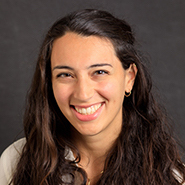
Eleni Palis
Assistant Professor, English & Cinema Studies
Project Title: A Cinema of Reparations: Contemporary American Media and the Reparative Mode
Project Description
A Cinema of Reparations theorizes a “reparative mode” in cinema, uniting several contemporary and concurrent debates regarding reparations and reparative justice underway in mainstream American politics and law, in racial justice organizing and activism, and in film theory and pedagogy at large. While “reparative modes” increasingly refract through film archives, industries, economies, genres, and curricula, as archivists, practitioners, scholars, and franchise executives attempt to decolonize and deconstruct exclusionary film institutions, no work yet exists on how reparative aesthetics emerge onscreen, within contemporary American media. A Cinema of Reparations locates how cinema refracts and reflects the contemporary reparations debate, spanning from Queen Mother Audley Moore in the mid-1960s to the 2019 and 2021 hearings on bill H.R.40: Commission to Study and Develop Reparations Proposals for African Americans (so numbered to invoke William T. Sherman’s 1865 “40 acres and a mule” promise ). A Cinema of Reparations uncovers a reparative mode, especially within films and media that adapt, amend, or un-make a film predecessor. As critically metacinematic engagements with history, the reparative mode helps to point the way forward in the contemporary sociopolitical struggle for reparative justice in American cultural life.
About Eleni Palis
Eleni Palis is an assistant professor of English and Cinema Studies at the University of Tennessee. She received her Ph.D. at the University of Pennsylvania in the Department of English, concentrating in Cinema and Media Studies. Her work focuses on the intersections between classical and post-classical American cinema, race and gender in contemporary American cinema, adaptation, genre theory, and videographic criticism.
Dr. Palis’ first monograph, Classical Projections: The Practice and Politics of Film Quotation theorizes a new term, “film quotation,” for the reuse of classical Hollywood film fragments within mainstream post-classical American cinema, arguing that film quotation is a constitutive element of post-classical authorship. This project ties scholarship on avant-garde traditions—like found-footage films, films composed of archival footage, and videographic criticism, video essays hosted online—to mainstream manifestations.
Her work has appeared in Screen, Cinema Journal, [in]Transition: Journal of Videographic Film and Moving Image Studies, Audiovisualcy: Videographic Film and Moving Image Studies, and Oxford Bibliographies Online.
Digital Humanities Fellow
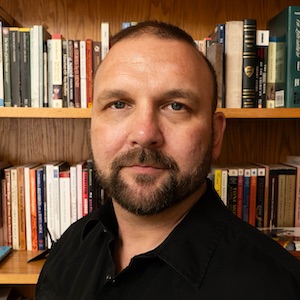
Thorsten Huth
Associate Professor, Department of World Languages & Cultures; Department of English
Project Title:
Project Description
Linguists who are interested in social interaction do not only study the structure of sounds, words, or grammar. We also study the systematic structures that underlie the back and forth of our daily, social interactions with others. How do we project what to say next? How do we open up or close conversations, how do we recognize questions as requests for information and then meet them with relevant and fitting answers? Addressing such fundamental questions, social-interactional research shows that with every turn we take in interaction, we “do” something. We accomplish actions such as inviting or requesting, and then we proceed to respond to such actions in extended, systematic sequences. Empirical research in this area spans world languages and provides a wealth of insight about how actual talk works. We can use this research to inform the goals for second language teaching by teaching not only how sounds build words and sentences, but also by teaching who says what in what succession in systematic interactional sequences, such as making a request, accepting an offer, or declining an invitation. To that end, this project lays the conceptual groundwork and basic infrastructure for the digital platform “ISLS – Interaction in Second Language Studies” which aims at identifying, vetting, and showcasing empirical research on social interaction across world languages so it can be utilized by scholars and curriculum designers to innovate second language teaching.
About Thorsten Huth
Thorsten Huth is an associate professor of German and linguistics in the Department of World Languages and Cultures as well as in the Department of English. His scholarship connects linguistic pragmatics and interaction, language learning, and teacher education. He is interested in the emergence of pragmatic and interactional competencies in language learners, how such competencies can be taught and learned in the language classroom, and in exploring the implications for the teaching of second languages. His monograph Interaction, Language Use, and Second Language Teaching (Routledge) appeared in 2021. His new book-length project addresses how language teaching can be reconceptualized in social-interactional terms.
Graduate Fellows

Henry Kirby
Doctoral Student, Department of English
Project Title: Unsettling Laughter: The Humor of Nineteenth-Century Native Literature
Project Description
The contours of the United States as we know it today are the result of four hundred years of warfare, coercion, violence, fraud, politics, and occasionally diplomacy, precariously held together by the circulation of nationalistic symbols and narratives in a heterogeneous and diverse print culture. As one of the most popular forms of expression in nineteenth-century print culture, humor played an important role in both representing and deconstructing images of the nation. However, when it is discussed, nineteenth-century American humor is rarely seen as political and it is still very much governed by a canon of white male “humorists.” The goal of my project is to restore to view the ways that nineteenth-century Native intellectuals used humor to negotiate power within the changing dynamics of the United States as it developed into an imperial power. The writing I examine was produced by Native intellectuals in response to key moments of nineteenth-century U.S. imperialism: the Indian Removal crisis, the U.S.-Mexican War, the territorialization of the Philippines following the Spanish-American War, and the enforcement of the Dawes Act which precipitated allotment and the dissolution of tribal sovereignty in Indian Territory. Recent scholarship has returned to the work of nineteenth-century Native writers in order to see how their work in English, far from being complicit in colonialist projects, subtly expresses Indigenous sovereignty. My project joins these efforts by analyzing humor as a rhetorical strategy for enacting sovereignty and representing Indigenous personhood.
About Henry Kirby
I am a fourth-year doctoral candidate at the University of Tennessee, Knoxville. My dissertation, “Unsettling Laughter: Humor in Nineteenth-Century Native Literature” explores nineteenth-century Indigenous authors’ use of humor in their English-language writing and speaking. My research interests include Native American and Indigenous Studies, Africana Studies, Early and Nineteenth Century American Literature, Comics Studies, and Visual Rhetoric.
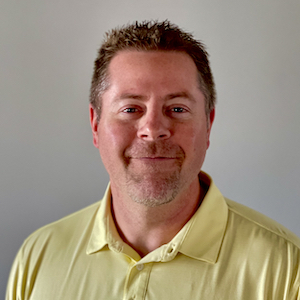
Casey Price
Doctoral Student, Department of History
Project Title: Given to This Land: Mapping Settler Colonialism in the Cherokee Homelands
Project Description
Casey’s dissertation project, “Given to This Land: Mapping Settler Colonialism in Kituwah: 1682-1810,” examines the relationship between cartography and settler colonialism in the Cherokee homelands. The dissertation focuses on maps and mapmakers to shine new light on the processes of settler colonialism in the Southeast region of North America. Alongside violence, mapping territory became a vital component for preempting and solidifying imperial expansion. He takes a bottom-up approach to early American cartographic history by emphasizing Cherokee and African participation in surveying, boundary formation, and mapmaking. Casey’s dissertation demonstrates that changes in cultural identity, agricultural practices, and social connections occurring through incremental changes in land tenure proved significantly more transformative than military violence in the Cherokee homelands. As part of his project, Casey will work with native Cherokee speakers to construct digital maps of the eighteenth-century Cherokee homelands using toponyms from contemporary maps and Cherokee oral traditions regarding the landscape.
About Casey Price
Casey Price is a PhD candidate in the Department of History. Casey’s work focuses on the history of cartography and the Native South, specifically the Cherokee. Casey received his M.A. (2019) and B.A. (2018) from East Tennessee State University in history. His current research project has been supported by 2023-2024 fellowships from The Omohundro Institute, The John Carter Brown Library, The Clements Library, The Filson Historical Society, The Native American Rights Fellowship from The Library Company of Philadelphia and the Pennsylvania Historical Society, The Phillips Fund for Native American Research from the American Philosophical Society, The North Caroliniana Society’s Archie K Davis Fellowship, and FEEGI.
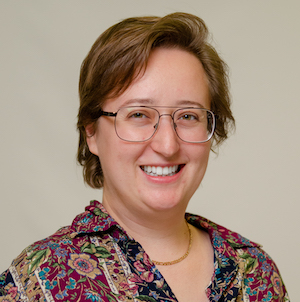
Kelly Sauskojus
Doctoral Student, Department of English
Project Title: Grantwriting Ecologies in East Knoxville Urban Agriculture Nonprofits
Project Description
For my dissertation, I will be doing a community-engaged case study, what Thomas (2011) refers to as three nested case studies, on the process of writing three different grants at interconnected East Knoxville urban agriculture or community garden nonprofits, including BattleField Farm and the Knoxville Botanical Garden and Arboretum. I want to understand all of the ways that different people contribute to these grants, whether through planning, research, conversations, drafting, or revisions, and I want to understand how the process of grantwriting, not just the finished text or the resources that may or may not be obtained, affects these nonprofit institutions themselves, especially their programming and priorities, how it affects the land of the farms and the gardens in the future, and, perhaps most importantly, how this process of grantwriting affects relationships between nonprofit staff and researchers, volunteers, or the frequently-evoked and highly contested ‘community.’
About Kelly Sauskojus
Kelly Sauskojus (she/they) is a PhD candidate in rhetoric, writing, and linguistics. Since the beginning of the coronavirus pandemic, she has spent a lot of time working at local urban agriculture and community garden nonprofits in Knoxville, serving on boards, growing and distributing produce, and helping win over $85,000 in grants. She is currently working on a dissertation about the process of how many different community members, staff, and volunteers who work at these nonprofits contributed toward three grants to support their work for land and food justice. Kelly was also one of only 25 students selected nationwide for the 2023 Humanities Without Walls Career Diversity Fellowship.
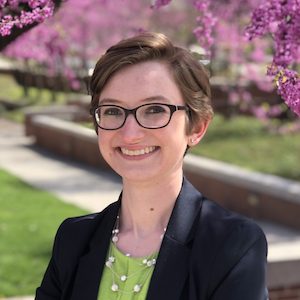
Kaitlin Simpson
Doctoral Student, Department of History
Project Title: The Flowers of El Dorado: Gender, Production, and the Cut Flower Industry in Colombia and the United States
Project Description
Kaitlin Simpson’s dissertation project, “The Flowers of El Dorado: Gender, Production, and the Cut Flower Industry in Colombia and the United States,” examines the history of the cut flower industry in the U.S. and Colombia from the 1910s to today. The global cut flower industry is currently worth over $34 billion, and the United States represents the largest importer of cut flowers in the world. Of these, almost 70 percent come from Colombia. Her project analyzes how this hemispheric trade in delicate flowers came to be and the impact increased cut flower production had on the Colombian agricultural economy, the lives of industry workers, and consumption and production in the United States. Among agricultural commodities, cut flowers stand out for a variety of reasons, namely their extreme perishability – withering mere days after they are cut – and their cultural power as symbols of love and admiration. It is this combination of ephemerality and cultural power that makes cut flowers the culmination of global capitalisms’ drive to push commodity production farther, faster, and cheaper – all in service to a demand manufactured by capitalism’s exploitation of gendered stereotypes.
About Kaitlin Simpson
Kaitlin A. Simpson is a Ph.D. candidate in American History studying the United States in a global context. She received an M.A. in history from the University of Tennessee in 2020 and a B.A. in history from the University of Louisiana, Monroe in 2018. Her research focuses on themes of gender, race, labor, agriculture, and the environment and the transnational connections that link the U.S. with Latin America and a broader global community. Kaitlin’s dissertation analyzes the globalization of the cut flower industry in the late-twentieth century. In particular, she looks at the exportation of the North American cut flower industry to Colombia and how ideas of gender shaped both the growth of Colombian floriculture and U.S. reactions to this globalization process. Her research has been supported by the John F. Kennedy Presidential Library (2022), the Society for Historians of American Foreign Relations (2022), the Agricultural History Society (2022), the Economic History Association (2022), UTK’s Center for Global Engagement (2023), and the UT Humanities Center (2023).
Marco Haslam Dissertation Fellow
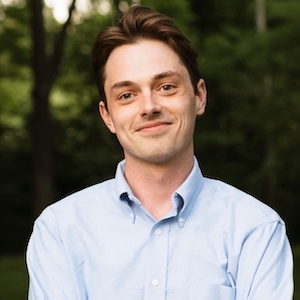
Matthew Baker
Doctoral Student, Department of History
Project Title: The World of Lérins: A Late Antique Monastic Ontology
Project Description
At the start of the fifth century, the island monastery of Lérins sat for a few years at the center of Christian discourse in the Latin West. Located several miles off the coast of southern Gaul, near modern Cannes, Lérins educated many of late ancient Gaul’s most well-known clerics: Honoratus of Arles, Eucherius of Lyon, Salvian of Marseille, and Caesarius of Arles, among others. Nevertheless, this important monastery has recently received very little sustained attention in the historiography.
This dissertation project traces these early years at Lérins, from its founding around 410 CE through the end of the fifth century. It follows the development of a distinctly Lerinian brand of monasticism—one among many possible pre-Benedictine “monasticisms”—as a blend of extreme socio-economic privilege, confidence in divinity’s immediate presence on their island, and an “Origenist” insistence on human potential and salvific agency. The dissertation project describes this intersection of belief as a “Lerinian ontology,” or “way of being,” employing language from the anthropologist Philippe Descola. The project will offer new ways of understanding not only Lérins but also the immense variety of Christian monasticisms alive in the late ancient world.
About Matthew Baker
“[As a fellow at the Humanities Center] I had the opportunity to work on my book daily without the distractions that come with the normal responsibilities of being a faculty member. I could come to work at the Humanities Center ready to think, write, reflect, brainstorm, and analyze—truly invest my time and energy in the historical process and everything it entails.”
—Brandon Winford, Assistant Professor, UT Department of History
UTHC Faculty Fellow, Class of 2016–2017